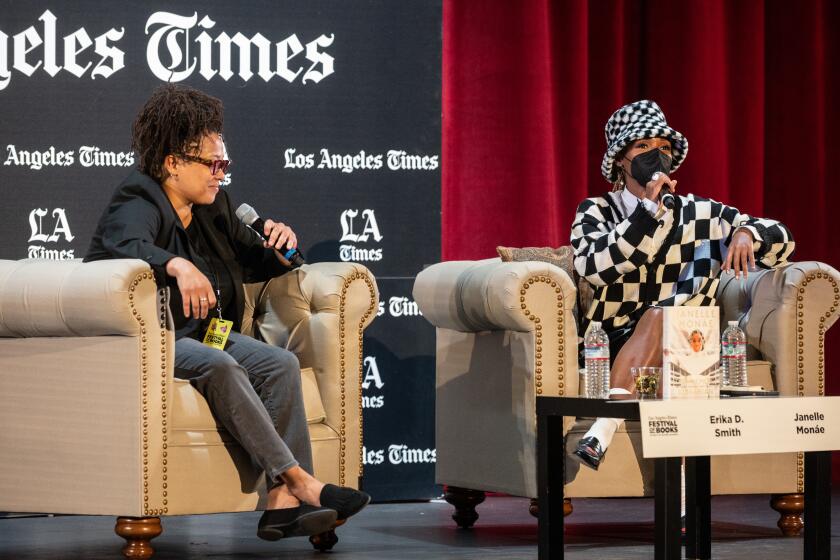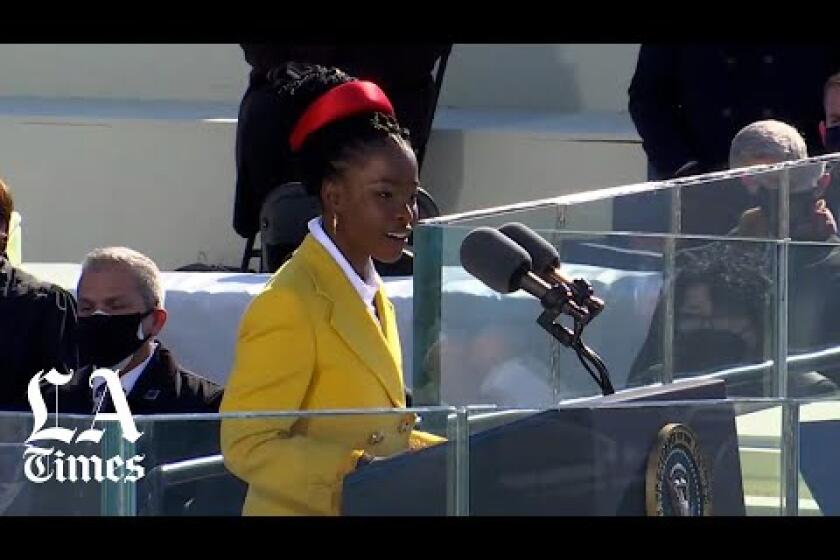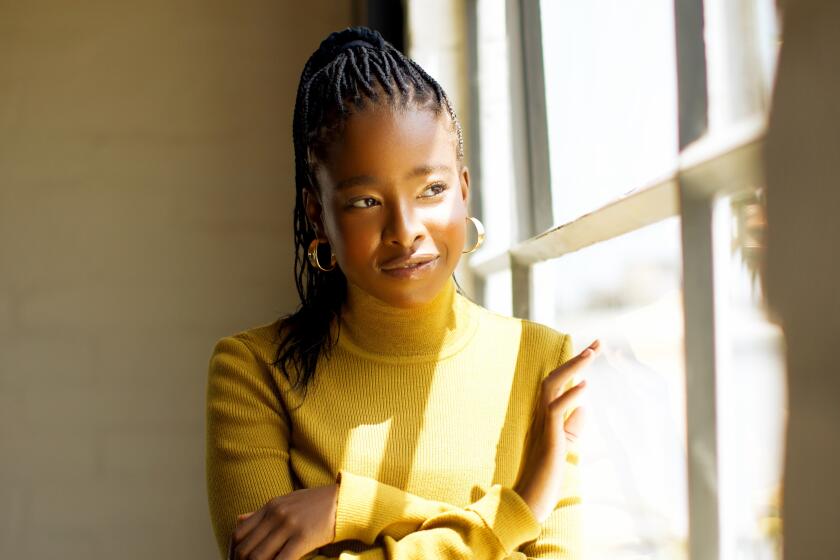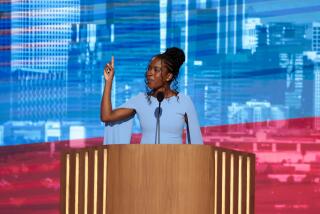Watch poet Amanda Gorman’s first public performance since the inauguration
- Share via
- Share via
For Amanda Gorman, who gave her first live reading since President Biden’s inauguration on Saturday at the L.A. Times Festival of Books, the grief and sorrow of the last two years has been a source of inspiration and solace.
“I try to look at the past both as a ghost and a guardian,” she said of the pandemic during a conversation with fellow poet Natalie J. Graham as part of the Times Book Club series. “It both can haunt me and it can heal me. It’s up to me to choose the path.”
At the festival to talk about her new book of poetry, “Call Us What We Carry,” Gorman read her poem, “Fugue,” from the collection. It was a full-circle moment for the 24-year-old writer, who was Los Angeles’ first youth poet laureate in 2014, as she spoke to an audience of more than 1,200 people Saturday on the festival’s main stage at the USC campus.
Panels, prizes and people — lots of them. Coverage of the L.A. Times’ first in-person Festival of Books since 2019 begins below.
Gorman’s inaugural poem, “The Hill We Climb,” became a New York Times Bestseller and her following on Instagram grew to 3.8 million followers. She’s aware of her large platform and especially cognizant of the weight and power of her words.
“Poetry really is the language of the people,” she said. “[Words] can be used both as weapons and also as instruments of hope and change and healing.”
The national youth poet laureate read her galvanizing poem, ‘The Hill We Climb,’ just after Joe Biden was inaugurated as the 46th U.S. president.
Gorman finds her poetry sitting in the tension between violence and calm, she explained. For “Call Us What We Carry,” she applied her background in sociology to transform historical texts into erasure poetry, cutting out words from found documents as a way to center marginalized voices.
“I don’t erase to erase, I erase to bond and to elevate,” Gorman said. “If I’m looking at a letter about the deaths of Native Americans during the United States 1918 influenza, I’m doing that because these people have already been erased. How do I erase the words of the colonizers, so the words of the colonized can have space and room?”
Gorman said she strives for connection across the vast divides that feel so insurmountable in the U.S. today. “[If] someone reads this book and feels love even if I don’t know them, I don’t see them, even if I don’t meet them, then I would have accomplished the greatest goal in poetry,” she said.
She became the national youth poet laureate at age 16; six years later, she read her poem at Joe Biden’s and Kamala Harris’ historic swearing-in.
Graham held herself during the conversation with the trademark poise and intention that mark her years of experience as a performance poet. When Graham asked Gorman about future creative projects, she expressed her desire to slow down and dive into forms of writing beyond poetry.
“When I started writing, I actually wanted to be a novel writer,” Gorman shared. “I want to get back to it. So I think you’ll start seeing various other art forms come in and I hope you like it.”
Gorman read “Fugue” at the close of the reading, as crowds swelled beyond the main stage onto the grassy fields of Alumni Park. “By goodbye,” she concluded, “we truly mean let us be able to say hello again.”
Amanda Gorman brings her new collection, ‘Call Us What We Carry,’ to the Los Angeles Times Festival of Books on April 23.
More to Read
Sign up for our Book Club newsletter
Get the latest news, events and more from the Los Angeles Times Book Club, and help us get L.A. reading and talking.
You may occasionally receive promotional content from the Los Angeles Times.














